When we read the mind-boggling statistical reports on environment published every now and then, I wonder where we are heading towards. The world we are living in is becoming a dreadful place with natural resources being depleted at frightening rate. Man’s endless greed for having everything through any possible means has led to such a situation – Thanks to Materialism that gifted us theories such as “Survival of the Fittest”.
Undoubtedly, Environmental degradation is today considered to be the greatest threat to the very existence of Human life. High Level Threat Panel of the United Nations identified it as one of the Ten Key Threats to the future of mankind. Despite the fact that there are hundreds of environmentalists working for this cause, the issue still remains afresh because what they are looking out for are temporary work-around and not a complete solution. Moreover, with the advent of ridiculous concepts such as Eco-Capitalism, the world is further fooled. We can’t address this issue with just a list of a few Do’s and Don’ts. Instead, we require a complete code of conduct that provides an ethical view of the conservation of Nature. Islam presents this all-encompassing code of conduct.
Islam, as understood by many is not just yet another religion. It presents a Holistic concept of Deen. Deen is an Arabic word which means a System of Life that guides mankind in all spheres of life. Islam observes a sound nexus between Human life and the Natural order, thus, providing a strong foundation for the Islamic Environmental practice.
Islamic Environmental practice is based on four principles,
- Tauheed (Oneness of God)
- Khilafah (Human Responsibility)
- Akhirah (Accountability)
- Mizaan (Balance of Universe)
Tauheed:
It is the most fundamental concept of Islam, which holds God as One. It asserts a Muslim’s belief that it is God who created the whole universe and is the Cherisher of it. The whole of the wonderful universe belongs to Him and He is the only Owner. “What is in the heavens and the earth belong to Allah. Allah encompasses everything” (Quran 4:125). This belief makes a Muslim’s perspective of the Nature different from others. He realizes that his actions need to be according to God’s will.
Moreover, the conservation of environment is an Ethical and moral imperative. Environmental problems can’t be addressed by mere Technology. Only through acceptance of a Supreme Owner of the universe can a Human draw limits to his own wishes.
Khilafah:
This belief assigns a status to the man that God created everything for him and appointed him the vice-regent. “it is He Who appointed you Khalifs on this earth” (Quran 6:167).This makes it clear that man, being the vice-regent is not the Owner of the universe and that he can’t follow his own desires in any aspect of life, including the utilization of Natural resources. His role is that of a Trustee (Amanah). He is supposed to act as per the Guidance of the Owner of universe, the God. Exploitation of the earth indicates man’s failure to fulfill his obligations as trustee. Such a perspective will generate a positive attitude towards the environment.
“If a Muslim plants a tree or sows seeds, and then a bird, or a person or an animal eats from it, it is regarded as a charitable gift (sadaqah) for him.” – Prophet Muhammad (PBUH)
Akhirah:
Why would a man think of ethics and morals while utilizing the natural resources? Why would he even think of safeguarding environment, on the first place? It is only the concept of accountability that motivates him to follow the ethics and refrains from doing all wrong-doings that can cause harm to the environment. Islam inculcates in every human being, the very concept of accountability that every deed would be questioned about.
Then, on that Day, you will be called to account for all the bounties you enjoyed. (Quran – 102:8)
Whoever kills a sparrow or anything bigger than that without a just cause, Allah will hold him accountable on the Day of Judgement – Prophet Muhammad (S).
Mizaan:
Ponder this, if the Sun, Moon and stars didn’t follow a particular schedule, what that would lead to? How do they work with so much perfection? God created a perfect balance in the universe “The All-Merciful taught the Qur’an, He created man and taught him clear expression. The sun and moon both run with precision. The stars and the trees all bow down in prostration. He erected heaven and established the balance.” (Quran 55:1-5). Whatever is in the universe is in perfect balance and we, as the Trustees must ensure that this Balance remains unperturbed.
He (Allah) has raised up the heaven and has set a balance, that you may not transgress in the balance, but weigh things equitably and skimp not in the balance. (Quran – 55:7-9)
Conclusion:
This Islamic concept of Environment is exhibited with acute perfection in the Life of Prophet Muhammad(S). His teachings and actions laid foundation of a society that stood out to be the best; a society that motivated man to give up the short-range profits and think of the ethical perspective.
Muhammad emphasised the Quranic decree of treating the earth as a trust, and humankind its guardians. Likening our planet to a sacred place of prayer, “All of the earth has been made to me as a mosque,” Muhammad promoted respect and responsibility towards the environment amongst his companions. He encouraged water conservation, instructing them not to be wasteful even if they were next to a flowing river, and stipulated the importance of keeping public places tidy: “One of the branches of faith is to remove litter from the street,” he said.
Today, we are encouraged to recycle, conserve, and care for the world around us. If Muhammad was here today, he would echo the same ecological concerns that he did over 1,430 years ago. Current ‘plant a tree’ campaigns sit well with Muhammad’s credentials. He organized the planting of trees and date groves, and turned forests into conservation areas called ‘hima’ or sanctuaries for thriving ecosystems.
His example pioneered acts of environmentalism throughout history: Ottoman ministers advised sultans on both societal and environmental matters. An innovative engineer and architect live in the Ottoman Empire, Sinan, created a sixteenth century recycling method: the smoke choking out from a multitude of candles and oil lamps in the Suleymaniye Mosque in Istanbul was channeled into a separate chamber and the soot used as writing ink. In Islamic Spain, water conservation was routine, where rainwater would be collected from ceramic-tiled roofs and would pass though a system of pipes to underground cisterns for storage.
Muslims continue to follow Muhammad’s example in protecting the environment through projects like eco-mosques and organic farming and by supporting the development of climate policy, sustainable working and a greener Hajj.
As Islam is only ideology which address the every domain of life and hence for environment. In this regard, SIO of India had decided to organize an online campaign to address the issue from Islamic perspective and create awareness among students and youth, with the following objectives.,
- To abide by the teachings of Islam, which view a sound nexus between living beings and Natural order, thus providing a strong foundation for peaceful and healthier coexistence.
- To create a massive awakening among human beings and reminding their humane responsibility to take care of the environment and protect natural resources.
- To develop a sense of justifiable development while industrial progress.
Syed Azharuddin
National Secretary, SIO of India.
[email protected] www.sio-india.org
Cell: +91 8686869411

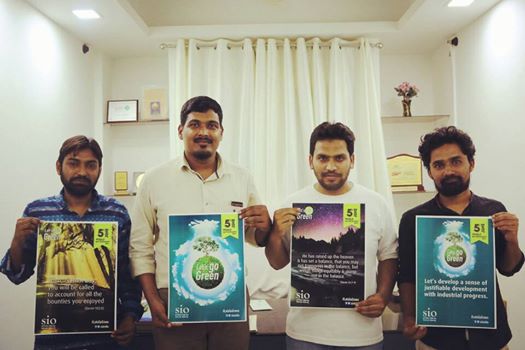
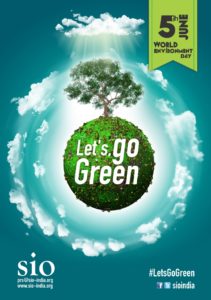
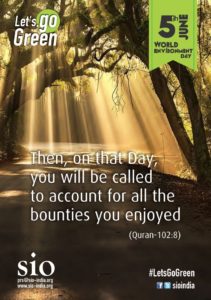
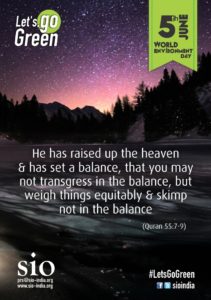
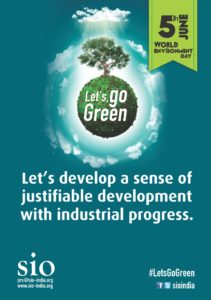

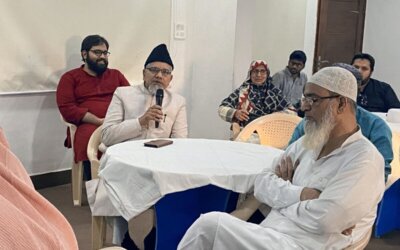
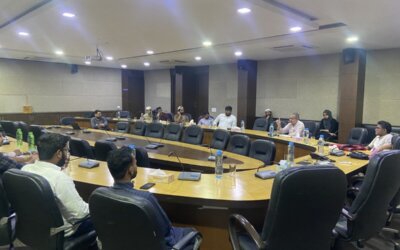
0 Comments